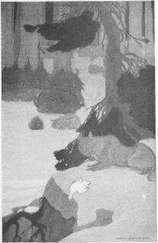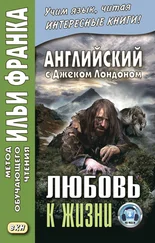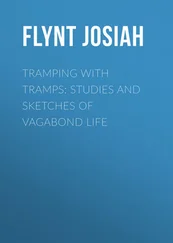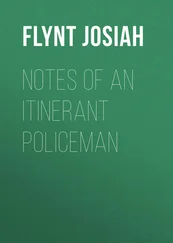Josiah Flynt - My Life
Здесь есть возможность читать онлайн «Josiah Flynt - My Life» — ознакомительный отрывок электронной книги совершенно бесплатно, а после прочтения отрывка купить полную версию. В некоторых случаях можно слушать аудио, скачать через торрент в формате fb2 и присутствует краткое содержание. Жанр: foreign_antique, foreign_prose, на английском языке. Описание произведения, (предисловие) а так же отзывы посетителей доступны на портале библиотеки ЛибКат.
- Название:My Life
- Автор:
- Жанр:
- Год:неизвестен
- ISBN:нет данных
- Рейтинг книги:5 / 5. Голосов: 1
-
Избранное:Добавить в избранное
- Отзывы:
-
Ваша оценка:
- 100
- 1
- 2
- 3
- 4
- 5
My Life: краткое содержание, описание и аннотация
Предлагаем к чтению аннотацию, описание, краткое содержание или предисловие (зависит от того, что написал сам автор книги «My Life»). Если вы не нашли необходимую информацию о книге — напишите в комментариях, мы постараемся отыскать её.
My Life — читать онлайн ознакомительный отрывок
Ниже представлен текст книги, разбитый по страницам. Система сохранения места последней прочитанной страницы, позволяет с удобством читать онлайн бесплатно книгу «My Life», без необходимости каждый раз заново искать на чём Вы остановились. Поставьте закладку, и сможете в любой момент перейти на страницу, на которой закончили чтение.
Интервал:
Закладка:
CHAPTER III
REST COTTAGE
Not long after my father died our family deserted the old brown house which remains in my memory still as the one independent home I have known in life. The old building has long since flown away on wings of fire and smoke, but I recall every nook and cranny in it from cellar to garret. There we children came to consciousness of ourselves, got acquainted with one another as a family, and played, quarreled, made up again until the old house must have known us very intimately. I prize very highly having had this early love for a house – it redeems somewhat those bad traits in my character which were so deplored.
An interim home was found for us in the village proper until an addition for our use could be built to my grandmother's house, not far from the main street.
One of my teachers, while we lived in the interim house, was a distant relative, who had a home a few doors removed from ours. I also went to the public school, at intervals, but of my teachers at that time I remember best Miss B – . She taught my older sister and myself such things as it interested her to teach, and in a way we got a smattering knowledge, at least, of History, Art, Mathematics (a plague on them!) and, I think, French. Nothing that the good dame taught us, however, ever made the impression on me that certain of her mannerisms did. She was a spinster, no longer young, and her mannerisms were doubtless the result of living much alone. An expression which she constantly used, in and out of season, was "For that." Putting a book down on the table, or straightening a disordered desk, called forth a "For that" after every move she made. It had no significance or meaning at any time that I heard her use it, but if she used it once in a day she did so a hundred times at least. I finally came to call her "Miss For That."
She was furthermore the cause of my coining a word which is still used in our immediate family. Some one asked me, one afternoon, how Miss B – impressed me, and I am alleged to have replied: "She's so spunctuated ." To the rest of the family it seemed a very good characterization of the lady, they understanding the word apparently quite as well as I thought that I did. Later I was often asked what I meant by the word, and it has never been easy to tell exactly; our family took it in and harbored it because they knew Miss B – and seemed to grasp immediately my meaning. What the word conveyed to me was this: that Miss B – was inordinately prim and orderly, and that as in a written sentence, with its commas, and semi-colons, her verbal sentences needed just so many "For Thats" to satisfy her sense of neatness. I even found her form of punishment for me, when I had been unruly, "spunctuated." I had to sit in the coal hod on such occasions, and the way Miss B – ordered me into the bucket, with an inevitable "For that" or two, sandwiched in with the command, increased her "spunctuatedness" in my estimation very noticeably.
The good woman eventually married, and I think lost some of her painful primness; but the word she helped me to invent still survives. I have been told that friends who have visited our home and could appreciate the word's meaning, have also incorporated it in their vocabularies. In some ways human beings the world over could be divided up into the "spunctuated" and the "unspunctuated."
In the annex attached to my grandmother's home my village life and early boyhood found their completion. When we left this home the family became scattered, one going one way and the others some other way; we have never all been together since the break-up. My brother, for instance, I have not seen in nearly twenty years, and have no idea where he is to-day. He also was possessed of Wanderlust , indeed we might as well call ourselves a Wanderlust family, because every one of us has covered more territory at home and abroad than the average person can find time, or cares, to explore. While living in the interim house my mother tried an experiment with me. She sent me away to a boys' boarding school about fifty miles north of Chicago. There had been a general family council of grandparents, uncles and aunts, and it was hoped that a change of control and discipline would achieve changes for the better in me.
The school was in the hands of an old English pastor and his wife, and they had succeeded in giving a certain English look to the old white building and grounds. My mother and I arrived at this institution of learning, so-called, one evening about supper time. The other boys, twenty-odd in number, ranging in years from ten to eighteen, were in the dining room munching their bread and molasses. It seemed to me at the time that I should certainly die when my mother left, and I should be alone with that rabble. Compromises and taking a back seat were to be inevitable in all intercourse with the larger boys, and the lads of my own age looked able to hold their own with me in any struggle that might occur. It was plain that I could bully no longer, and there was a possibility that the tables would be turned, and that I should be the one bullied. These thoughts busied me very much that night, which I spent with the master in his room. By morning I had half-a-dozen escapes well planned, leading back to the home village, and they lightened the parting from my mother, who seemed quite pleased with the school.
Getting acquainted with the other scholars proved a less arduous task than I had anticipated, which may be partly explained by the fact that my room-mate had arrived on the same day that I did, and we were able to feel our way together, as it were. As a lad, and to-day as well, if there is any strange territory to be covered, or an investigation is on, I feel pretty much at a loss without some kind of a companion, either human or canine.
The experience at the school, however, fairly pleasant and instructive though it became as I got over a preliminary homesickness, made such a faint impression on my character, one way or the other, that there is but little of interest, beyond my abrupt French leave-taking, to report. There had been several abortive attempts to get away before the final departure, but we – I always had companions in these adventures – were invariably overhauled and brought back. A well-meant "lecture" followed our capture, that was all. Indeed the days spent in the school were the only days of my early boyhood free of whippings. They were sometimes promised, but the good old pastor relented at the last moment and let me off with a reprimand.
The runaway trip that finally succeeded was most carefully planned and executed. For days four of us discussed routes, places where we could get something to eat, and railway time-tables; and the boy who knew Chicago best arranged for our reception there, if we should get that far. This time we were not going to take to the railroad near the village; we had failed there too often. We knew of another railroad some eight miles inland, and this became our first objective. We left the school at night when the master and the scholars were asleep. Carrying our shoes in our hands, our pockets stuffed with surplus socks and handkerchiefs, we stole out of the old white building unobserved, and on into a cornfield, where we put on our shoes and made sure once again that we had not been followed. Then, light-hearted and happy in the thought that we were free, we tramped rapidly to the railroad. Reaching a good sized station about one o'clock, we awaited an express train due in an hour or so. It came thundering along on schedule time, and two boys "made" the "blind baggage," while the Chicago boy and I perched ourselves just behind the cow-catcher. After this dare-devil fashion we rode into Chicago, arriving there just as the milkman and baker-boy were going their rounds. The darkness, of course, had helped us immensely. We had no money for car-fare, and had to pick our way through a labyrinth of streets before we found our Chicago companion's barn, where we rolled ourselves up in some very dirty carpets on the floor and fell asleep to dream of freedom and its delights.
Читать дальшеИнтервал:
Закладка:
Похожие книги на «My Life»
Представляем Вашему вниманию похожие книги на «My Life» списком для выбора. Мы отобрали схожую по названию и смыслу литературу в надежде предоставить читателям больше вариантов отыскать новые, интересные, ещё непрочитанные произведения.
Обсуждение, отзывы о книге «My Life» и просто собственные мнения читателей. Оставьте ваши комментарии, напишите, что Вы думаете о произведении, его смысле или главных героях. Укажите что конкретно понравилось, а что нет, и почему Вы так считаете.












